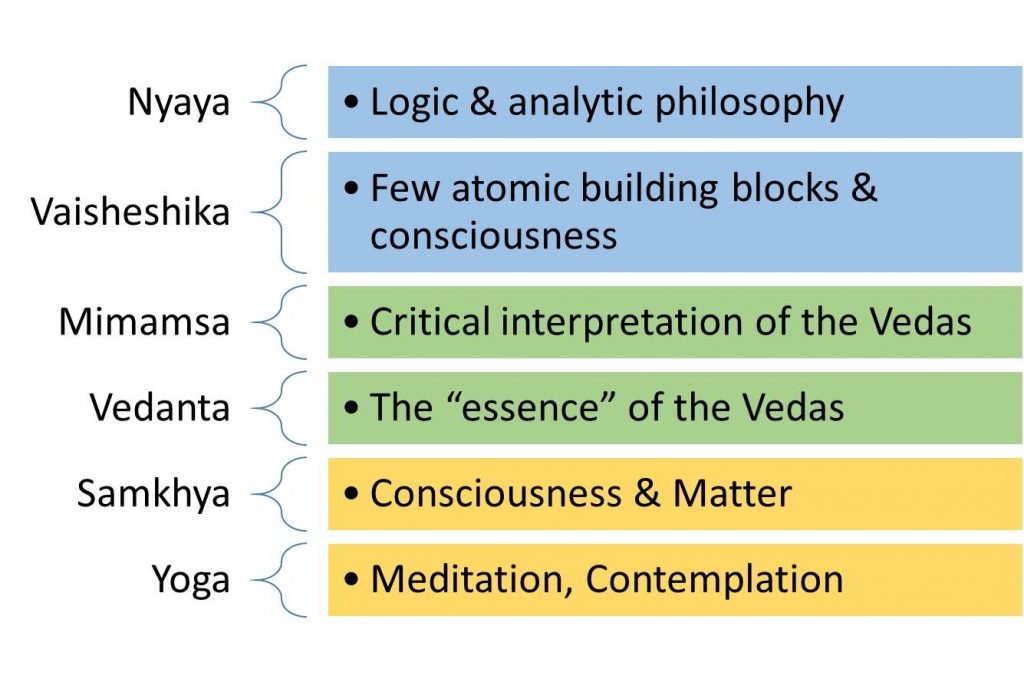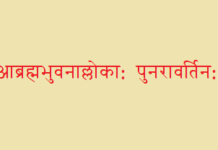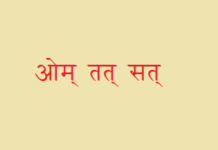Six school of Hindu philosophy
Indian Philosophy or Hindu Philosophy is generally classified into six orthodox schools and three heterodox schools.
The basic difference between orthodox and heterodox schools is based on the recognition of Vedas. Orthodox schools believe on authority of Vedas, while heterodox schools don’t believe in the authority of Vedas.
Orthodox Schools of Hindu Philosophy
The six schools of Hindu Philosophy are Samkhya, Yoga, Nyaya, Vaisheshika, Purva Mimamsa and Uttar Mimamsa (Vedanta).

Almost all Hindu schools of thought accepted the theory of karma and rebirth, and the ideal of moksha is conceived as liberation from the cycle of births and deaths. Moksha/liberation is considered as the highest goal of human struggle.
Samkhya Philosophy (सांख्य)
Samkhya is the philosophy put forward by Kapila. Samkhya Philosophy is dualistic and not monistic because it has two entities, Purusha (spirit) and Prakriti (nature).
Samkhya emphasizes the attainment of knowledge of self by means of concentration and meditation.
Purusha cannot be modified or changed while prakriti brings change in all objects.
Yoga Philosophy (योग दर्शन)
Yoga presents a method of physical and mental discipline.
The Yoga presents a practical path for the realization of the self whereas the Samkhya emphasizes the attainment of knowledge of self by means of concentration and meditation.
Releasing Purusha from Prakriti by means of physical and mental discipline is the concept behind Yoga. Founder of Yoga philosophy was Patanjali.
Nyaya Philosophy (न्याय दर्शन)
Nyaya Philosophy states that nothing is acceptable unless it is in accordance with reason and experience. Founder of this philosophy is Gautama and the principles are mentioned in Nyaya Sutras.
Nyaya says that the world is real. Nyaya philosophy relies on several Pramanas ( means of obtaining knowledge).
The principal means of obtaining knowledge is Pratyaksha Pramana (knowledge obtained through the senses) followed by Anumana (inference) and Shabda Pramana (scriptures)
Vaisheshik Philosophy (वैशेषिक दर्शन)
Vaisheshika philosophy was called as physics of ancient times, as it propounded the atomic theory and its founder was Kanada.
Vaisheshika was regarded as part of the Nyaya philosophy. Vaisheshika was later separated from Nyaya and put forth as a separate philosophy.
Vaisheshika is a realistic and objective philosophy of universe. Vaisheshika accepts perception and inference as sources of valid knowledge
Purva Mimamsa (पूर्व मीमांसा)
The word “Mimamsa” means to analyze and understand thoroughly. Purva Mimamsa examines the teachings of the Veda in the light of Karma (Rituals)
Purva Mimamsa considers Vedas as eternal and possessing all knowledge, therefore emphasis is on performing yagna for attaining various spiritual and worldly benefits.
Purva Mimamsa philosophy relies on the Brahmana and Samhita of the Vedas.
Uttara Mimamsa (उत्तर मीमांसा)
Uttara Mimamsa, also called as Vedanta says that the world is unreal. It is caused by Maya, the power of Brahman.
Vedanta is monistic, it says that there is only one reality called Brahman.
Vedanta lays emphasis on self knowledge, hence relies on the Upanishads which is later part of the Vedas.
Heterodox Schools of Hindu Philosophy
Schools that do not accept the authority of vedas are by definition unorthodox (nastika) systems. The following schools belongs to heterodox schools of Hindu Philosophy.
Carvaka (चार्वाक दर्शन)
It is characterized as materialistic and aesthetic school of thought. It accepts direct perception as the method to prove the truth of anything.
Carvaka philosophy is also known as Lokayata. Founded by Carvaka who wrote Barhaspatya Sutras.
Buddhist Philosophy (बौद्ध दर्शन)
It is a system of beliefs based on the teachings of Siddhartha Gautama.
Buddhism is a non-theistic philosophy whose tenets are not especially concerned with the existence or non-existence of God.
Buddhists philosophy of life to get ‘Nirvana’ from suffering is based on the following eight principles
Ajivika Philosophy (आजीविक)
The Ajivikas may simply have been a more loosely-organized group of wandering ascetics (shramanas or sannyasins)



















